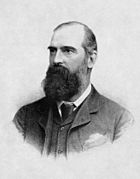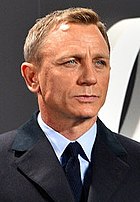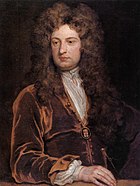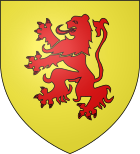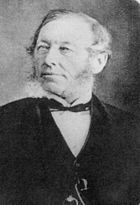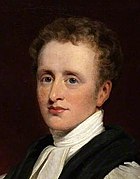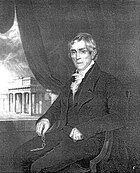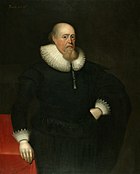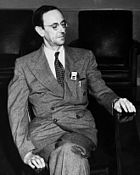Portal:Cheshire/Selected biography/Archive
The following biographies are featured as the Selected biography at the Cheshire Portal. (Former Selected biographies are archived here.) To suggest a biography for inclusion, use the suggestions page
Portal:Cheshire/Selected biography/1
Margaret Ursula Jones (née Owen; 16 May 1916 – 23 March 2001) was an archaeologist.
Born in Birkenhead, Jones first became involved in archaeology while studying at the University of Liverpool, where she volunteered on W. J. Varley's 1930s excavations of Cheshire hillforts, including Maiden Castle and Eddisbury hill fort. In 1956, she began working for the Ministry of Works as a freelance archaeologist in the burgeoning field of rescue archaeology.
Jones is best known for directing the Mucking excavation in Essex (1965–78), a major Anglo-Saxon settlement and associated cemetery, with finds ranging from the Stone Age to the Medieval period. It was Britain's largest ever archaeological excavation, producing an unprecedented volume of material. Some academic archaeologists have criticised the fact that the results did not appear in print until decades after the excavation had ended. Jones' work at Mucking, as well as her role in founding the campaign group Rescue, was influential in the establishment of modern commercial archaeology in Britain.
Portal:Cheshire/Selected biography/2
Michael James Owen (born 14 December 1979) is a former English football player who played as a striker. Born in Chester, his father Terry Owen was a professional footballer who played for Chester City and Everton.
Owen enjoyed a hugely successful and high-profile career at both club and international level, and in 2001 became one of a handful of English players to win the Ballon d'Or. As of 2019, he is fifth in the list of all-time top scorers for the England team and is England's eleventh most-capped player, having scored 26 competitive goals – formerly a national record – with 40 in total from 89 appearances (1998–2008). Pace and clinical finishing were Owen's greatest assets early in his career, though he later lost pace due to injuries.
In club football, he played for Liverpool (1996–2004), Real Madrid (2004–5), Newcastle United (2005–9), Manchester United (2009–12) and Stoke City (2012–13). He retired from football in 2013. He has subsequently owned and bred racehorses, and acts as a sports commentator and pundit.
Portal:Cheshire/Selected biography/3
Sir Adrian Cedric Boult (8 April 1889 – 22 February 1983) was an English conductor. Born in Chester, he was educated at Westminster School, Christ Church, Oxford, and the Leipzig Conservatory, where he learned to conduct by watching the eminent Hungarian conductor Arthur Nikisch. He made his concert debut in 1914, and conducted the first performance of Holst's The Planets in 1918.
Boult conducted the City of Birmingham Symphony Orchestra 1924–30 and 1959–60, and the BBC Symphony Orchestra for twenty years from its inception in 1930. After his controversial enforced retirement from the BBC Symphony, he became Principal Conductor of the London Philharmonic Orchestra, a position he held until 1957. He continued to conduct and make recordings until 1981.
Particularly associated with 20th century British music, Boult's prolific recordings include the complete Vaughan Williams symphonies, as well as many works by Elgar and Holst. The main auditorium (pictured) of the Birmingham Conservatoire was named for him.
Portal:Cheshire/Selected biography/4
Thomas Brassey (7 November 1805 – 8 December 1870) was a civil engineering contractor and manufacturer of building materials. At the time of his death, he was responsible for building 1 in every 20 miles of railway worldwide.
Born in Buerton, the son of a farmer, he attended school in nearby Chester. After an apprenticeship in Overton, Flintshire, he established a business in Birkenhead. His first railway commission was Penkridge Viaduct, completed in 1837.
Brassey was responsible for building about one-third of Britain's railways and three-quarters of those in France, as well as major lines across Europe and in Canada, Australia, S. America and India. He also constructed the associated docks, bridges, viaducts, stations, tunnels and drainage works. His other works included steamships, mines, locomotive factories, marine telegraphy and water supply and sewerage systems, including part of the London sewerage system. His estate was valued at over £5 million.
Portal:Cheshire/Selected biography/5
Sir John Tomlinson Brunner, 1st Baronet (8 February 1842 – 1 July 1919) was a chemical industrialist and Liberal Party politician.
Born in Liverpool, he worked at Hutchinson's alkali works in Widnes, rising to general manager. In 1873, in partnership with Ludwig Mond, he started the chemical company Brunner Mond & Co. at Winnington near Northwich, initially making alkali by the Solvay process. It became the wealthiest British chemical company of the late 19th century and, after Brunner's death, was one of the four companies that merged to found Imperial Chemical Industries (ICI).
Brunner represented Northwich in Parliament in 1885–86 and 1887–1910. He was a prominent Freemason, a paternalistic employer and a generous benefactor to the towns in his constituency and to the University of Liverpool. He is the great grandfather of HRH The Duchess of Kent.
Portal:Cheshire/Selected biography/6
Daniel Craig (born 2 March 1968) is an English actor. Born in Chester and brought up on the Wirral, he joined the National Youth Theatre at the age of sixteen and graduated from the Guildhall School of Music and Drama in 1991. His breakthrough performances were in Layer Cake and Lara Croft: Tomb Raider; other early successes include roles in Enduring Love and Munich.
Craig is the sixth actor to portray the fictional secret agent James Bond in the long-running film series. His debut appearance in the 2006 film Casino Royale gained critical acclaim and was nominated for a BAFTA award. He also stars in the sequels, Quantum of Solace, Skyfall, Spectre and No Time to Die. He guest-starred as Bond alongside Queen Elizabeth II in the 2012 Olympic opening ceremony.
He has also appeared in The Girl with the Dragon Tattoo and The Golden Compass, an adaptation of the Philip Pullman novel, Northern Lights. He was nominated for a 2020 Golden Globe Award for his work in the murder mystery, Knives Out.
Portal:Cheshire/Selected biography/7
Joseph Priestley (13 March 1733 – 6 February 1804) was a theologian, Dissenting clergyman, natural philosopher, educator and political theorist. He is usually credited with the discovery of oxygen, which he dubbed "dephlogisticated air", having isolated it in its gaseous state. He also discovered several other gases, invented soda water and wrote on electricity.
He served as a minister in Nantwich (1758–61), and also established a school where he taught natural philosophy. It was here that he wrote the seminal work, The Rudiments of English Grammar. He was also a tutor at Warrington Academy (1761–67).
Priestley's metaphysical writings attempted to combine theism, materialism and determinism; these works are considered to be one of the main sources for utilitarianism. Besides Rudiments, his contributions to pedagogy include the invention of modern historiography. He advocated equal rights for religious Dissenters and helped to found Unitarianism in England.
Portal:Cheshire/Selected biography/8
John Douglas (11 April 1830 – 23 May 1911) was an English architect, practising in Chester. Pevsner described him, without qualification, as "the best Cheshire architect".
Born in Sandiway, his father was a former labourer who rose to be a surveyor. He trained with Edmund Sharpe and Edward Graham Paley in Lancaster, and later practised with Paley. Other early influences included Pugin and the Cambridge Camden Society. He set up his own practice in Chester in 1860, working with Daniel Fordham, Charles Minshall and his two surviving sons. His early buildings were High Victorian; he later became an important practitioner of the half-timbered revival style.
Douglas' most popular works are the black-and-white buildings on Chester's St Werburgh Street and the nearby Eastgate Clock. Many of his works are on the Eaton Hall estate of the 1st Duke of Westminster, an important patron. He also designed churches, large houses and many smaller properties.
Portal:Cheshire/Selected biography/9
Lindow Man, sometimes called Pete Marsh, is a naturally preserved bog body of an Iron Age man, discovered in a peat bog at Lindow Moss near Mobberley in 1984. The body has been preserved by freeze drying and is usually on display at the British Museum.
Lindow Man was a healthy male in his mid-20s, perhaps someone of high status, such as a druid, as his body has manicured fingernails and shows little evidence of heavy or rough work. He would have stood around 5'7" (1.7 m) tall and have weighed about 132 pounds (60 kg). He had healthy teeth but was suffering from slight osteoarthritis and an infestation of whipworm and maw worm. The body retains a trimmed beard, moustache and sideburns of brown hair, and was naked apart from a fox-fur armband.
The nature of his death was violent, possibly ritualistic. After a last, charred meal, he was strangled, hit on the head, and his throat was cut. His body was deposited into Lindow Moss, face down, in around March or April some time between 2 BC to 119 AD.
Portal:Cheshire/Selected biography/10
Rowland Eyles Egerton-Warburton (14 September 1804 – 6 December 1891) was a Cheshire landowner, garden designer and poet. Born at Norley, he inherited the Arley and Warburton estates, and is best remembered for rebuilding Arley Hall and its chapel, in association with the young Nantwich architect George Latham. With his wife, he designed formal gardens for the hall, including one of Britain's earliest herbaceous borders. The hall and its gardens are now an important tourist attraction. A keen fox hunter, he served as president of the Tarporley Hunt Club. His poetry collection, Hunting Songs, ran to eight editions, and some of his rhymes remain on signposts in the Arley Hall grounds.
A major local benefactor, he built or restored three churches, two schools, a church hall, post office, public road and multiple cottages, many of which were designed by Chester architect John Douglas. He is particularly known for his work in giving the village of Great Budworth, "one of Cheshire's most charming villages", its present picturesque appearance.
Portal:Cheshire/Selected biography/11
Benjamin Paul "Ben" Amos (born 10 April 1990) is a footballer who plays as a goalkeeper. He is also an England youth international who has represented his country at every level from Under-16 to Under-21.
Born in Macclesfield, Amos began his career with Crewe Alexandra's youth academy and also played as a centre midfielder for Bollington United. He joined Manchester United at the age of 11, making his competitive first-team debut in September 2008 and appearing for the team in the 2008 FIFA Club World Cup. He was their third-choice goalkeeper for parts of the 2010–11 and 2011–12 seasons. He spent time on loan at Peterborough United (2009), the Norwegian club Molde (2010), Oldham Athletic (2011), Hull City (2012) and Carlisle United (2013). He joined Bolton Wanderers in 2015, and played on loan with Cardiff City (2016–17), Charlton Athletic (2017–18) and Millwall (2018–19). He joined Charlton Athletic in 2019 and Wigan Athletic in 2021.
Portal:Cheshire/Selected biography/12
Alan Mathison Turing (23 June 1912 – 7 June 1954) was a mathematician, logician, cryptanalyst and computer scientist. He was influential in the development of computer science and providing a formalisation of the concept of the algorithm and computation with the Turing machine, playing a significant role in the creation of the modern computer.
During World War II, Turing worked at Bletchley Park, Britain's codebreaking centre, devising techniques for breaking German ciphers, including the method of the bombe, an electromechanical machine that could find settings for the Enigma machine. He later worked at the National Physical Laboratory, creating one of the first designs for a stored-program computer, the ACE. He joined the University of Manchester in 1948, developing software for the Manchester Mark 1.
Turing's homosexuality resulted in criminal prosecution in 1952. As an alternative to imprisonment, he accepted chemical castration. He committed suicide at his home in Wilmslow in 1954. In 2009, Gordon Brown officially apologised on behalf of the government for Turing's treatment, and in 2013, Turing was granted a royal pardon. The Bank of England announced in 2019 that Turing's portrait will appear on the £50 note.
Portal:Cheshire/Selected biography/13
Sir John Vanbrugh (1664 – 26 March 1726) was an English architect and dramatist. Born in London, he grew up in Chester. As a young man and a committed Whig, he was involved in a plot to overthrow James II, put William III on the throne and protect English parliamentary democracy. His actions led to his imprisonment as a political prisoner in the Bastille.
As an architect, Vanbrugh created what came to be known as English Baroque. He designed Blenheim Palace and Castle Howard. His architectural work was bold and daring, and jarred conservative opinions on the subject.
His two argumentative and outspoken Restoration comedies, The Relapse (1696) and The Provoked Wife (1697) have become enduring stage favourites, although they originally occasioned much controversy. Vanbrugh offended many sections of Restoration and 18th century society, not only by the sexual explicitness of his plays, but also by their messages in defence of women's rights in marriage.
Portal:Cheshire/Selected biography/14
Ranulf le Meschin (died 1129) (coat of arms pictured) was a late 11th- and early 12th-century Norman magnate based in northern and central England, who is also known as Ranulf de Briquessart and Ranulf I. Originating in Bessin in Normandy, Ranulf made his career in England thanks to his kinship with Hugh d'Avranches, first earl of Chester, the patronage of kings William II and Henry I, and his marriage to Lucy, heiress of the Bolingbroke–Spalding estates in Lincolnshire.
Ranulf fought in Normandy on behalf of Henry I, and served the English king as a semi-independent governor in the far north-west, in Cumberland and Westmorland, founding Wetheral Priory. After the death of his cousin Richard d'Avranches in the White Ship Disaster of November 1120, Ranulf became the third earl of the county of Chester. He held this position for the remainder of his life, and passed the title on to his son, Ranulf de Gernon. He was buried in Chester Abbey.
Portal:Cheshire/Selected biography/15
Neil Brooks (born 27 July 1962) is a former sprint freestyle swimmer. Born to working-class parents in Crewe, Brooks emigrated to Australia as a toddler. He started swimming lessons after nearly drowning in a childhood accident.
Brooks formed part of the Australian team for the 1980 Olympics (commemorative badge pictured) in Moscow. The peak of his swimming career came in the 4 × 100 m medley relay, as part of the Quietly Confident Quartet, when he caught and passed the Soviet Union's Sergey Kopliakov during the anchor leg to seal a narrow victory for Australia. This victory remains the only time that the United States did not win the event at Olympic level. At the 1984 Olympics in Los Angeles, he gained silver and bronze medals for relay events. Brooks also won gold and silver medals in the individual 100 m freestyle events at the 1982 and 1986 Commonwealth Games, respectively. Brooks' career was marred by disciplinary problems, and he was suspended following the 1986 Commonwealth Games, ending his international career. He subsequently worked as a news presenter and sports commentator.
Portal:Cheshire/Selected biography/16
Edmund Sharpe (31 October 1809 – 8 May 1877) was an architect, architectural historian, railway engineer and sanitary reformer, who was born in Knutsford.
As an architect, he predominantly designed churches, of which around forty survive; Cheshire examples include St Wilfrid's, Davenham, and Holy Trinity, Northwich. He pioneered the structural use of terracotta in the so-called "pot" churches, such as St Stephen and All Martyrs', Lever Bridge. He also developed railways in the north-west of England, and championed the construction of new sanitary works in Lancaster, where he practised in 1835–1851.
Sharpe achieved his greatest recognition as an architectural historian, publishing many articles, books and detailed architectural drawings. He criticised the widespread practice of restoring medieval churches, and devised a scheme for the classification of English Gothic architectural styles. In 1875, he was awarded the Royal Gold Medal of the Royal Institute of British Architects.
Portal:Cheshire/Selected biography/17
Reginald Heber (21 April 1783 – 3 April 1826) was a clergyman, biographer and hymn-writer, who was born in Malpas.
After his ordination in 1807, he served as rector of Hodnet for sixteen years. During this period he wrote a biography of the 17th-century cleric Jeremy Taylor, as well as 57 hymns. Only a handful of these remain in use, including "Holy, Holy, Holy" and "Brightest and best of the sons of the morning". His missionary hymn "From Greenland's icy mountains" was formerly popular, but became controversial in the 20th century for its lack of sensitivity to non-Christian beliefs.
A fervent supporter of missionary aims, Heber served as the Anglican Bishop of Calcutta from 1823 until his death. He travelled widely within India and worked hard to improve both spiritual and general living conditions within his diocese. After his death in Trichinopoly, monuments were erected to his memory in St Paul's Cathedral and in India. Bishop Heber High School in his home town of Malpas was named for him.
Portal:Cheshire/Selected biography/18
Nicholas Anthony "Nick" Robinson (born 5 October 1963) is a television and radio journalist and political editor.
Born in Macclesfield, he was interested in politics from an early age. He studied philosophy, politics and economics at the University of Oxford, where he served as President of the university's Conservative Association. From his first broadcasting position at Manchester's Piccadilly Radio, he worked his way up as a producer to become deputy editor of Panorama, the world's longest-running current affairs programme. He has presented several television and radio programmes, including Westminster Live, Newsnight and, since 2015, the Today programme.
Robinson was a political correspondent from 1996 to 2015, working for the BBC and ITN. He was the BBC's political editor from 2005 to 2015. Noted for his confrontational and provocative approach, he has sometimes caused a stir with his style of questioning, particularly of world leaders such as George W. Bush.
Portal:Cheshire/Selected biography/19
Thomas Harrison (1744 – 29 March 1829) was an architect and bridge engineer. He worked in northwest England, and many of his buildings were in Cheshire and Lancashire.
His most important project in Cheshire was the design of new buildings within the grounds of Chester Castle, a commission on which he worked from 1786 until 1815. He created accommodation for prisoners, law courts and a shire hall. His other works include public buildings, gentlemen's clubs, churches, houses and monuments. Most of his designs, particularly those at Chester Castle, were Neoclassical in design, and he was a major influence in the emergence of the Greek Revival in British architecture.
Harrison was also known for his innovative work on bridges. Skerton Bridge in Lancaster was the first substantial bridge in England to have a flat roadway, and Grosvenor Bridge in Chester, his final major commission, was the longest single-arched masonry bridge in the world at the time of its construction. He died at his home in Chester in 1829.
Portal:Cheshire/Selected biography/20
Plegmund (or Plegemund) was a medieval scholar and archbishop who lived in the 9th and 10th centuries. Little is known about his early life, but a later tradition holds that he lived as a hermit at Plemstall, which means "holy place of Plegmund".
By 887, King Alfred the Great had summoned him to court, where he worked to translate Pope Gregory the Great's treatise Pastoral Care into Old English. He was appointed Archbishop of Canterbury by the king in 890. He reorganised the Diocese of Winchester, creating four new sees, and continued to translate religious texts. In 908, he travelled to Rome, the first Archbishop of Canterbury to do so for nearly a century.
Plegmund was canonised after his death, on 2 August in either 914 or 923. The second of August was celebrated as his feast day.
Portal:Cheshire/Selected biography/21
Jonathan Philip Agnew (born 4 April 1960), nicknamed "Aggers", is a cricket broadcaster and former professional cricketer, who was born in Macclesfield.
He had a successful first-class career as a fast bowler for Leicestershire from 1979 to 1990, playing for England six times in Test matches and One Day Internationals. His greatest success came towards the end of his career, after he started to swing the ball. He took 100 wickets in a season in 1987 and was named one of Wisden's Cricketers of the Year in 1988.
Since his retirement, Agnew has become a leading voice of cricket on radio, as the BBC radio cricket correspondent and as a commentator on Test Match Special. He has also appeared on the Australian Grandstand team. He is known for his humour and occasional innuendo. His notorious on-air "leg over" comment in 1991 has been voted "the greatest sporting commentary ever" in a BBC poll.
Portal:Cheshire/Selected biography/22
Robert Tatton (1606 – 19 August 1669) was a Cheshire landowner who supported King Charles I in the Civil War.
He inherited the family estate in Wythenshawe, then in Cheshire, aged ten, and married Anne Brereton in 1628. When Civil War broke out, he joined the Royalist side, despite his wife being closely related to Sir William Brereton, who commanded the Parliamentary forces in Cheshire. Tatton is perhaps best known for his defence of his family home, Wythenshawe Hall, during its three-month siege in the winter of 1643/44 by a Parliamentary force commanded by Robert Duckenfield. Parliamentary casualties included Duckinfield's second-in-command, but their victory was inevitable when cannons were brought in. On surrender, the hall's contents were valued at almost £1650 (now around £230,000).
Tatton served as the High Sheriff of Chester between 1645 and 1646. Although heavily fined by Parliament for fighting on the side of the king, he was subsequently rewarded for his loyalty by Charles II following the restoration of the monarchy in 1660. The Wythenshawe estate remained in the Tatton family until the 1920s.
Portal:Cheshire/Selected biography/23
One Direction is a boy band active from 2010 to 2016, which shot to fame after finishing third in the television singing competition The X Factor. Singer Harry Styles (born 1 February 1994) is from Holmes Chapel, and the group's other members are from England and Ireland. Their prominent social media presence was judged a factor in their rapid success. Their style includes teen pop, dance pop, pop rock and power pop.
The group's 2011 debut album Up All Night topped the charts in sixteen countries, and was the first debut album by a British group to enter the US Billboard 200 chart at the top. Their subsequent albums, Take Me Home, Midnight Memories and Four, topped the charts in most major markets. A fifth album, Made in the A.M., was released in 2015. Their first single "What Makes You Beautiful" reached number one in the UK charts; subsequent hit singles include "Live While We're Young", "Story of My Life" and "Steal My Girl". The biographical film This Is Us was released in 2013. One Direction won seven Brit Awards and four MTV Video Music Awards. Zayn Malik left in 2015, and the band has been on hiatus since 2016.
Portal:Cheshire/Selected biography/24
Sir James Chadwick (20 October 1891 – 24 July 1974) was an English physicist who was awarded the Nobel Prize in physics for his 1932 discovery of the neutron. He later measured its mass.
Born in Bollington, he studied at the University of Manchester. His early research, under Hans Geiger, showed that beta radiation produces a continuous electromagnetic spectrum. He was Assistant Director, under Ernest Rutherford, of the University of Cambridge's Cavendish Laboratory for over a decade, when it was one of the world's foremost centres for physics research.
In 1935, Chadwick joined the University of Liverpool, turning its physics laboratory into an important nuclear physics research centre by installing a cyclotron. During the Second World War, he was involved in the Tube Alloys project to build an atomic bomb, and later led the British team working on the Manhattan Project. Knighted in 1945, he served as Master of Gonville and Caius College, Cambridge 1948–1958.
Portal:Cheshire/Selected biography/25
William "Billy" Windsor I is a cashmere goat who served as a lance corporal in the 1st Battalion, the Royal Welsh, an infantry battalion of the British Army, based at Chester. The tradition of having goats in the military originated in 1775, when a wild goat walked onto the battlefield in Boston during the Battle of Bunker Hill and led the Welsh regimental colours.
Although descended from the same bloodline as the original royal herd, presented to Queen Victoria in 1837 by Mohammad Shah Qajar, the Shah of Persia, Billy was born in Whipsnade Zoo. He was presented to the regiment by Queen Elizabeth II in 2001, in a tradition dating back to 1844. His primary duty was to march at the head of the battalion on all ceremonial duties. He was deployed overseas, and paraded before royalty. His handler carried the title "Goat Major". Billy retired to Whipsnade Zoo in 2009.
Portal:Cheshire/Selected biography/26
Paula Jane Radcliffe (born 17 December 1973) is a former long-distance runner, specialising in the marathon. Born in Davenham, she took up running aged seven, joining Frodsham Athletic Club.
She is a three-time winner of both the London Marathon and the New York Marathon, and has also won the Chicago Marathon. She has been world champion in the marathon, half marathon and cross country events, the European champion over 10,000 metres and in cross country, and the Commonwealth champion over 5000 metres. She held the women's world record in the marathon, with a time of 2 hours 15 minutes and 25 seconds, from 2003 to 2019.
Radcliffe has been awarded the BBC Sports Personality of the Year, Laureus World Comeback of the Year, IAAF World Athlete of the Year and AIMS World Athlete of the Year. She has campaigned against the use of performance-enhancing drugs in sport. She retired from competition in 2015.
Portal:Cheshire/Selected biography/27
Portal:Cheshire/Selected biography/27
Portal:Cheshire/Selected biography/28
Portal:Cheshire/Selected biography/28
Portal:Cheshire/Selected biography/29
Portal:Cheshire/Selected biography/29
Portal:Cheshire/Selected biography/30
Portal:Cheshire/Selected biography/30





